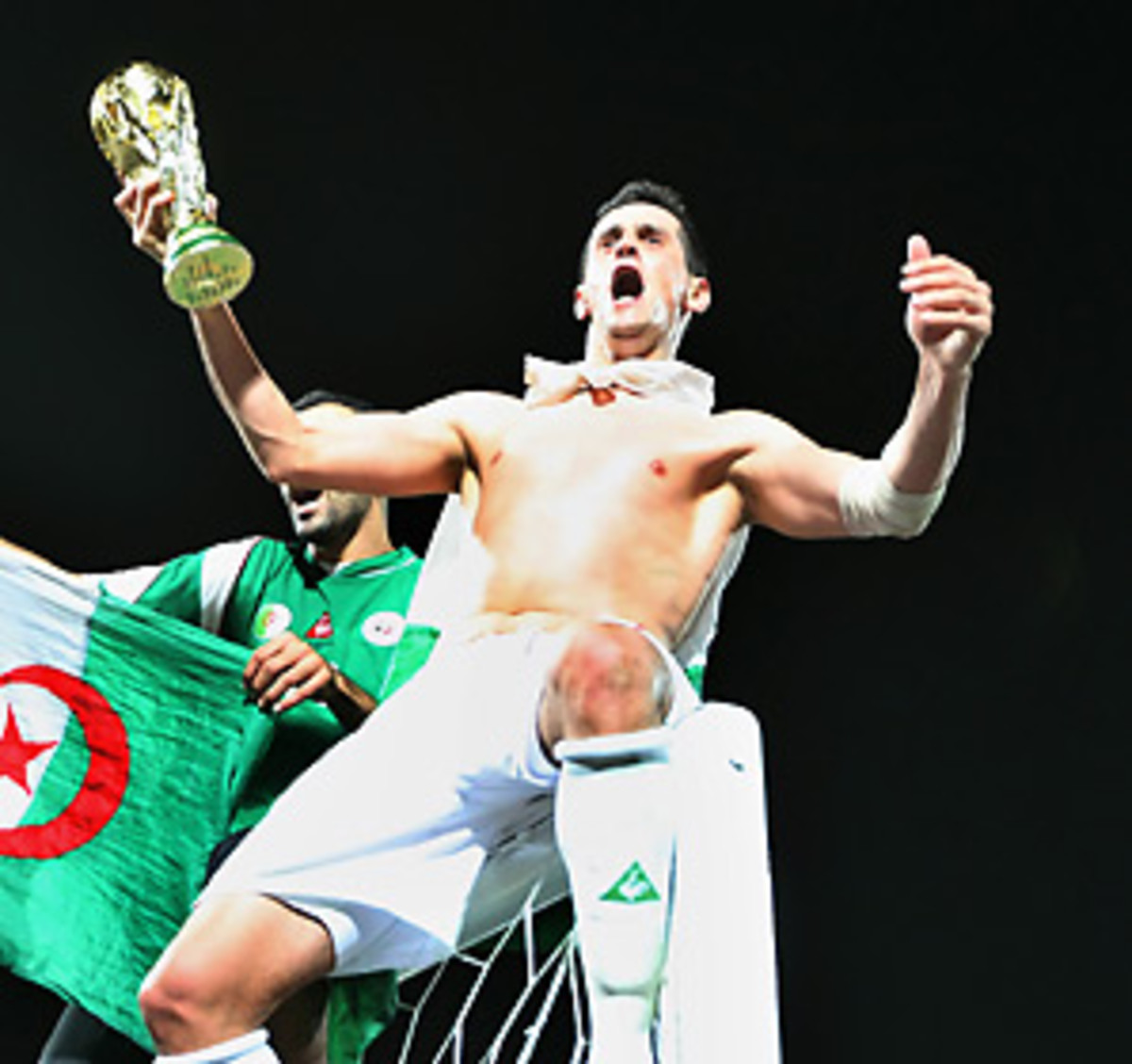The 'Algerian Cantona' grows up


More than a few coaches will be finding it hard to believe Rafik Saïfi's transformation from bad boy to trusted international skipper and role model for younger teammates.
During a decade in France -- with Troyes, Istres, Ajaccio and Lorient -- no one ever questioned the 34-year-old's technical ability, delicate touch or wide range of flicks and backheels. Yet, in the eyes of most, his undoubted skills came at too high a price.
"He was a player who would have you tearing your hair out," says his former boss at Istres, Mecha Bazdarevic. "One trick would never be enough for him. He would have to do it twice or three times. If he was through on goal, a simple side-footed finish was not his style. He'd have to go for something spectacular.
"Of course, the fans loved it. But, when you are fighting against relegation, he's a luxury you cannot afford. He's an artist. Not one for effectiveness. In times past, when everybody played to win, he'd be the first on the team sheet. But not now.
"That said, he'd be a sensation at a club like Marseille, where the supporters love extravagant ability. He would have had the Stade Vélodrome in his pocket."
But it seems you can teach an old dog new tricks. While still able to turn a game with a devastating dribble or magical party piece, Saïfi unexpectedly reinvented himself during 2010 World Cup qualifying, toning down the overt individualism and at long last, learning how to mix up the flashes of genius with basic, but nonetheless essential, link-up work -- the sort of tasks he once would have thought below him.
Rather than showboating, he is now more focused on winning games for Algeria, and he certainly did his fair share of spadework en route to South Africa, forever impressing with his quick feet, vision and goals.
The onetime lone ranger has also developed into a fine skipper; a guiding light on and off the pitch (though Yazid Mansouri will wear the captain's armband at the African Cup of Nations). Following his team's 2-0 loss in Egypt, a result which meant the two countries would have to face off in a one-game playoff in Khartoum, the Algerians were in a state of shock -- traumatized not only by the defeat, but also by the stoning of their bus on arrival in Cairo. But comfortable in his role as leader, Saïfi stepped forward to rally the troops.
And he did a good job, too, with Algeria winning the Sudan showdown 1-0 to book only its third World Cup finals appearance, after 1982 and 1986.
"I said my piece to the boys, so did our coach [Rabah Saadane]," says Saïfi. "But after the violence in Cairo, no one in our camp really needed motivating for the playoff.
"We felt we were victims of an injustice, and to make it worse this happened in another Arab country. We had players hurt on that bus, including myself. The Egyptians said we made it all up. But we had proof. We filmed it on our mobiles. FIFA should have done a lot more about it. [Diego] Maradona says a few words and he's suspended for two months. We, on the other hand, had no redress."
Straight talking is second nature to Saïfi. When Troyes coach Alain Perrin asked him to go easy with the Ramadan fasting, he angrily threatened to quit, and last year he accused referee Tony Chapron of telling him to "shut your mouth."
Some assumed Saïfi's decision to leave Ligue 1 Lorient last summer for a short stay at the Al-Khor club in Qatar would signal the end of his international career. Not a bit of it. The "Algerian Cantona" is ready for one last hurrah.
This article originally appeared in the January 2010 issue of World Soccer magazine. To subscribe, click here.
